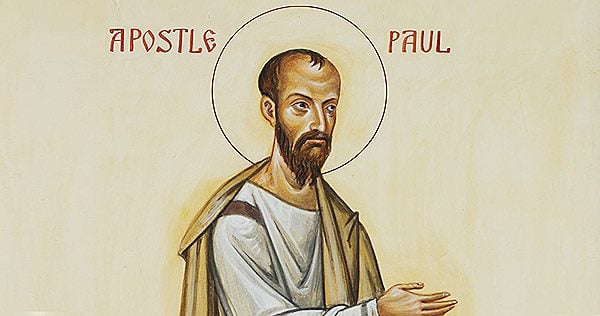"For to me to live is Christ, and to die is gain. If I am to live in the flesh, that means fruitful labor for me. Yet which I shall choose I cannot tell. I am hard pressed between the two. My desire is to depart and be with Christ, for that is far better. But to remain in the flesh is more necessary on your account. Convinced of this, I know that I will remain and continue with you all, for your progress and joy in the faith" (Philippians 1:21-25).
The verses above are an expression of the ambivalence that Paul felt about the approach of death. The epistle was probably written a few years before his martyrdom in 68AD. Did he know that it was approaching? We don't know. If he did, he doesn't explicitly say so, either here or in any of the other extant Pauline letters. But, at least hypothetically, he was considering a coming time when he would be spiritually absent. That knowledge produced a conflict within him. He gloried in the thought of being with Jesus in Heaven. However, he was also aware of the frailty of the churches that would be left behind, such as this one in Philippi.
The thing I want to focus on is something that Paul does not say. Even though he is concerned about the aid that will be needed by these Philippian Christians, he does not say, "Oh, well, the problem is solved, because you will be able to pray to me in heaven, and I will be able to intercede with Jesus for you, just as I do in this earthly life." Yet, that is what the Roman Catholic and Eastern Orthodox churches teach about the dead saints in Heaven, especially Mary.
If their doctrine of saints were true, then Paul's dilemma would not exist. Therefore, we can know that Paul did not believe anything comparable to the Catholic/Orthodox doctrine of saints. It is just simple but necessary logic.
Subscribe to:
Post Comments (Atom)



6 comments:
But why sling nitpicking mud when efforts to restore the unity of fragmented Christendom is what is really needed, to face growing numbers of adversaries, now coming with greater intensity from all quarters.
United we stand....,divided we fall.
It isn't nitpicking, Lawrence. It's the First Commandment. if it was that important to God, then I must speak agains the idolatry of saint worship.
So why don’t the Orthodox have a problem with it?
I’d say it’s veneration..., by people who are comforted by it, not worship.
Much like in China where it keeps the forebearers (aka ancestors) close to one’s heart and mind, as models worthy of imitation (by the Christian faithful)
After centuries of unity, it seems to me that the Reformers went to extremes, throwing out the baby with the bath water.
Lawrence
C'mon, Lawrence. Your equivocation is shallow. The distinction between "worship" and "veneration" is a distinction without a difference.
Is the venerable Chris Cole, the object of people’s worship?
I don’t think so...
Respect and admiration, perhaps, but worship, no.
Not comparable, since I am alive, and you can communicate with me. Neither requires necromantic rituals on your part or omniscience and omnipresence on my part.
Post a Comment